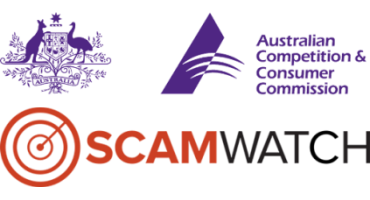Have you received an email or a call out of the blue from someone asking for money or sensitive information?
The ACCC is warning small businesses to be vigilant and protect themselves from scams.
In 2016, businesses reported losing $3.8 million to scammers, with small businesses accounting for over half of the money lost.
The ACCC’s 2016 Targeting Scams report reveals the top three scams businesses need to be aware of:
- Ransomware – these scams trick you into downloading a virus that infects your computer and prevents you from accessing the system until payment is made to ‘unlock’ it. A recent example is the WannaCry virus.
- Business email compromise scams – involves a scammer obtaining access to your business’ email address and contacting your customers requesting payment into the scammer’s account. The scammer may even email your accounts department and try to redirect payments into their account.
- Investment scams – these scams are promoted as business opportunities (for example sports investment or stock broker scams, superannuation schemes or managed funds) and promise inflated returns.
As most scammers use email, some simple steps you can put in place to protect yourself include:
- Always scrutinise new requests for any payment and have a clearly defined process for verifying and paying accounts and invoices.
- Regularly back-up your computer’s data on a separate hard drive so this can be easily re-installed if your computer is infected by malware or ransomware.
- Ensure your computer has a firewall and up-to-date anti-virus and anti-spyware software.
See the ACCC’s media release if you would like to know more. Businesses can learn more about scams, including how to avoid them, by checking out the business scams guide, visiting the Scamwatch website, signing up to Scamwatch radar alerts, and following Scamwatch on Twitter.

